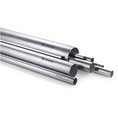What is stronger: steel pipe or iron pipe?
Steel pipe and iron pipe are both widely used in various industries and applications. They are essential components in infrastructure, construction, plumbing, and many other areas. However, when it comes to their strength and durability, there are some fundamental differences between the two. In this article, we will explore and compare the strength of steel pipe and iron pipe, highlighting their unique characteristics, strengths, and weaknesses.
Understanding Steel Pipe
Steel is an alloy made primarily of iron, carbon, and other elements such as manganese, silicon, and sulfur. The carbon content in steel is what distinguishes it from iron, making it stronger and more versatile. Carbon steel, in particular, is commonly used in the manufacturing of pipes due to its strength and durability.
Strength of Steel Pipe
Steel pipe is known for its exceptional strength. Its superior mechanical properties, including tensile strength, yield strength, and impact resistance, make it a popular choice in applications where durability is essential. Steel pipes can withstand high pressure, heavy loads, and extreme temperatures, making them suitable for a wide range of environments and conditions.
The strength of steel pipe can be attributed to its composition and manufacturing process. Carbon steel pipes are made by mixing molten iron with carbon, which creates a strong bond between the iron atoms, resulting in a robust and durable material. Additionally, steel pipes can be further strengthened through various heat treatment processes, such as quenching and tempering, to enhance their mechanical properties.
Advantages of Steel Pipe
One of the significant advantages of steel pipe over iron pipe is its superior strength. Steel pipes can be designed to withstand higher internal and external pressures, making them suitable for applications such as oil and gas pipelines, water distribution systems, and structural supports. The high strength of steel pipes allows for the transportation of fluids and gases at high pressures, ensuring the safe and efficient delivery of resources.
Moreover, steel pipes have excellent resistance to corrosion, a crucial factor in environments where pipes are exposed to moisture, chemicals, and harsh weather conditions. Corrosion can weaken pipes over time, leading to leaks and failures. However, the protective oxide layer that forms on the surface of steel pipes helps prevent corrosion and extends their lifespan.
Steel pipes are also known for their versatility. They can be easily customized and fabricated into various shapes and sizes to meet different requirements. Steel pipes come in a wide range of diameters, wall thicknesses, and lengths, offering flexibility in design and installation. Furthermore, steel pipes can be welded, soldered, and threaded, allowing for easy connection and assembly.
Understanding Iron Pipe
Iron pipe, on the other hand, refers to pipes made primarily of iron or cast iron. Iron is a strong and durable material, but it lacks the strength and versatility of steel due to its lower carbon content. Iron pipes were widely used in the past but have been largely replaced by steel pipes in many applications.
Strength of Iron Pipe
Iron pipes possess moderate strength but are generally less durable compared to steel pipes. Their lower carbon content makes them more susceptible to deformation, cracking, and failure under high pressure or heavy loads. Iron pipes are not recommended for applications that require high strength and resistance to extreme conditions.
Advantages of Iron Pipe
Although iron pipes may not possess the same level of strength as steel pipes, they still offer certain advantages in specific applications. One of the significant advantages of iron pipes is their excellent resistance to fire. Due to their high melting point, iron pipes can withstand high temperatures without deformation, making them suitable for fire protection systems and other fire-related applications.
Furthermore, iron pipes have good noise insulation properties, reducing noise transmission in plumbing systems. This quality makes iron pipes preferable for applications where noise reduction is essential, such as residential buildings, hospitals, and hotels.
Iron pipes are also relatively cost-effective compared to steel pipes. Their lower manufacturing cost and abundant availability make them a more affordable option for certain applications where high strength is not a critical requirement.
Conclusion
In conclusion, steel pipe is generally stronger than iron pipe due to its higher carbon content and superior mechanical properties. Steel pipes offer exceptional strength, durability, and resistance to corrosion, making them ideal for a wide range of applications. On the other hand, iron pipes possess moderate strength and offer advantages such as fire resistance and noise insulation. The choice between steel pipe and iron pipe depends on the specific requirements of the application, considering factors such as strength, durability, resistance to corrosion, and cost-effectiveness.




